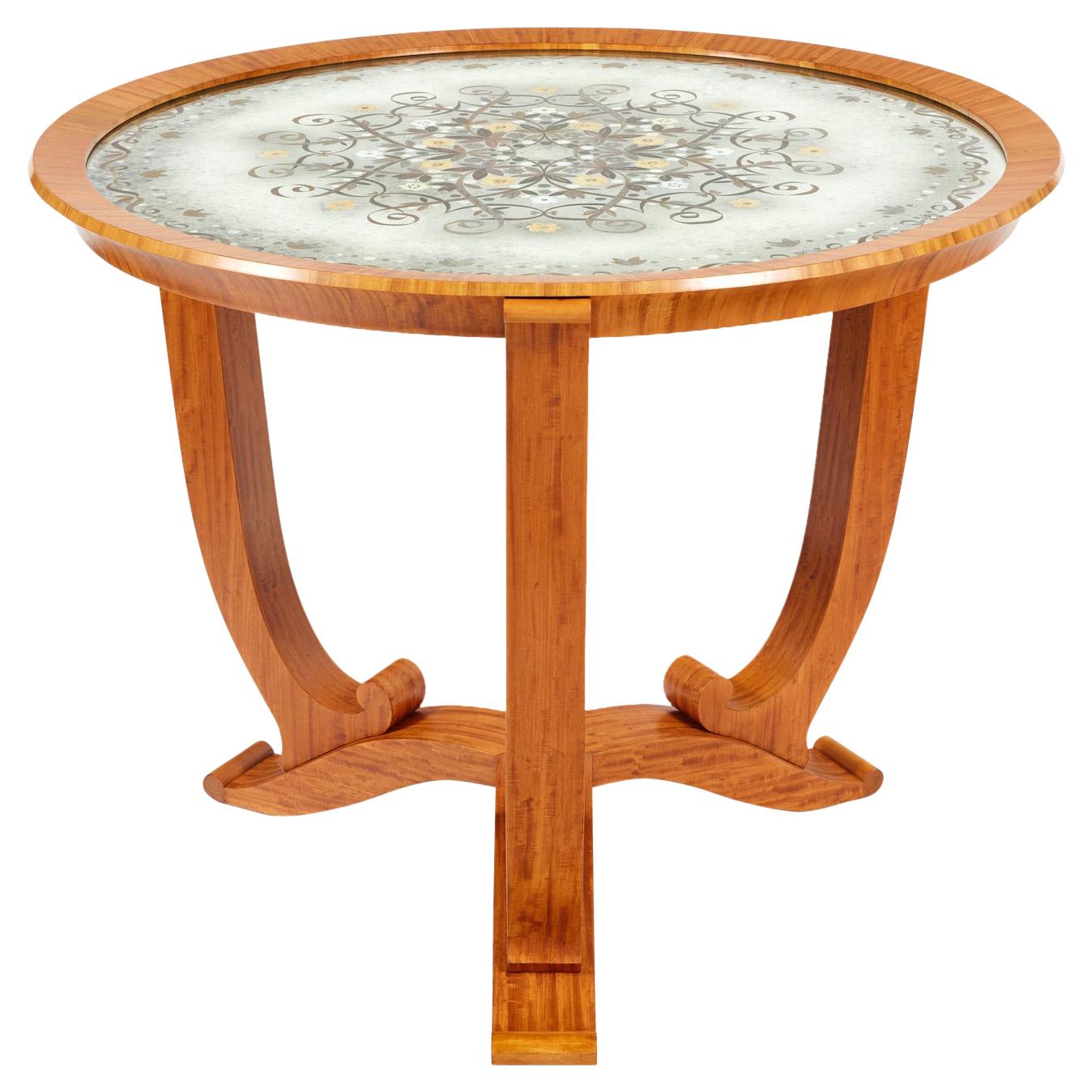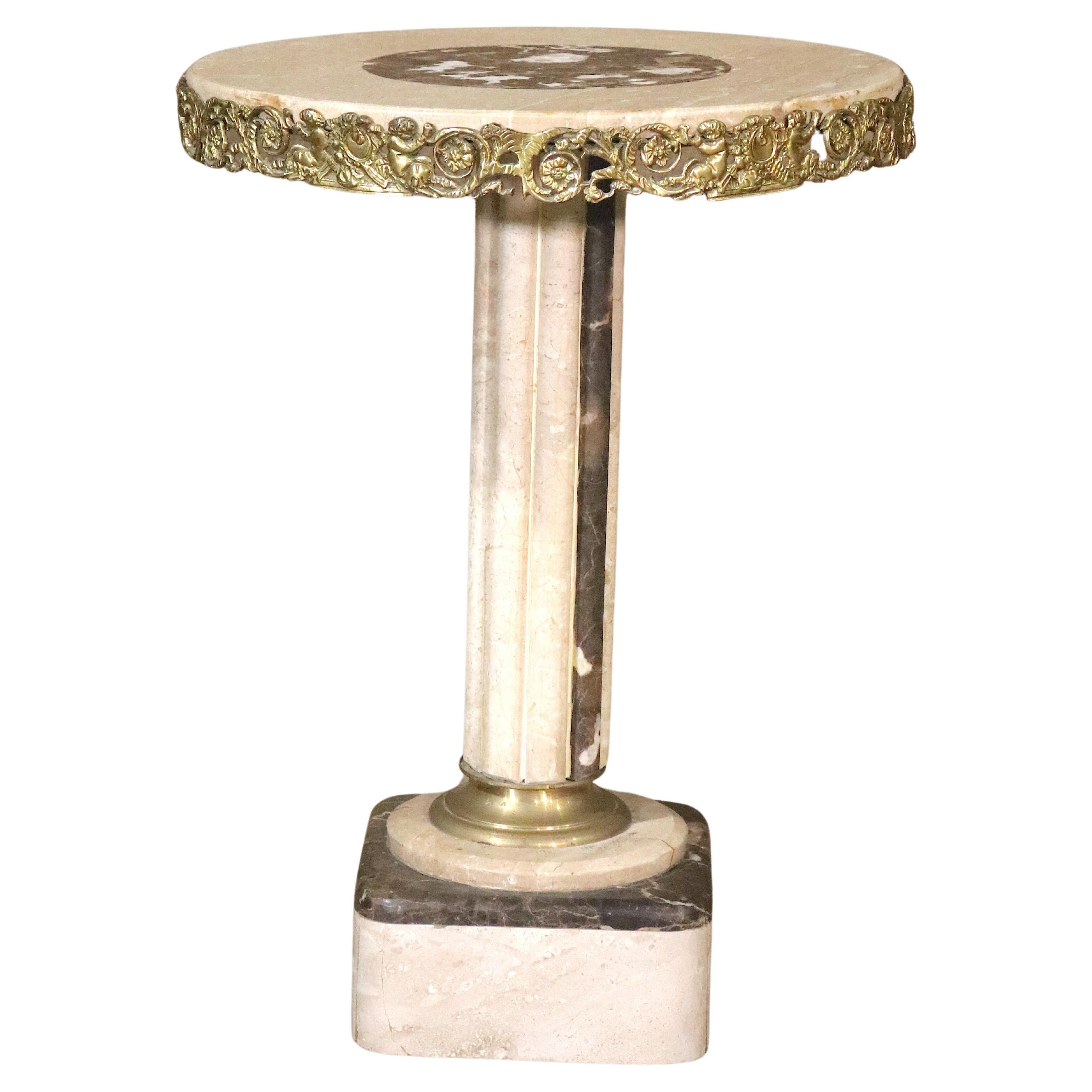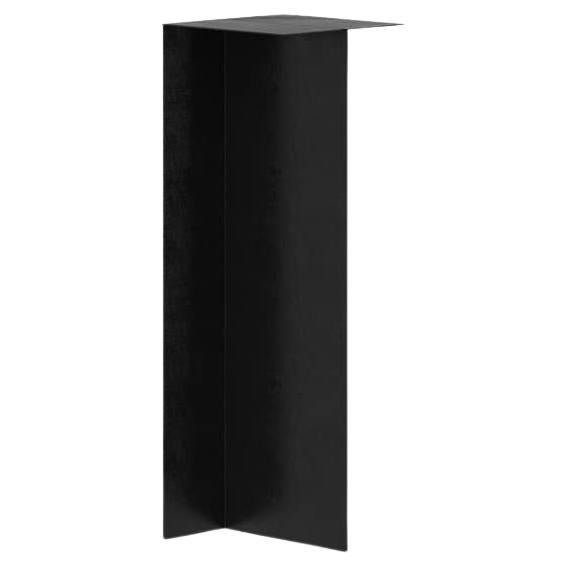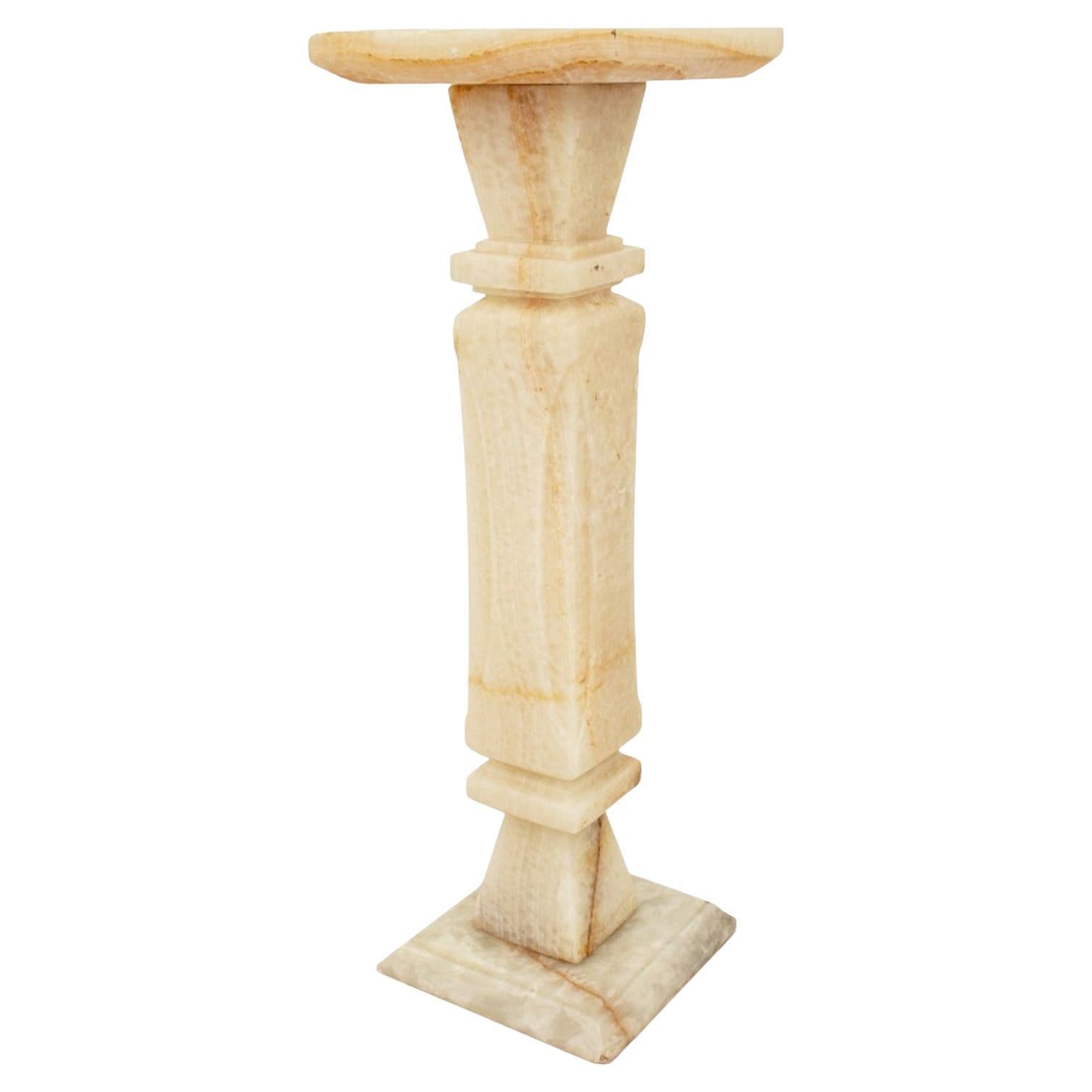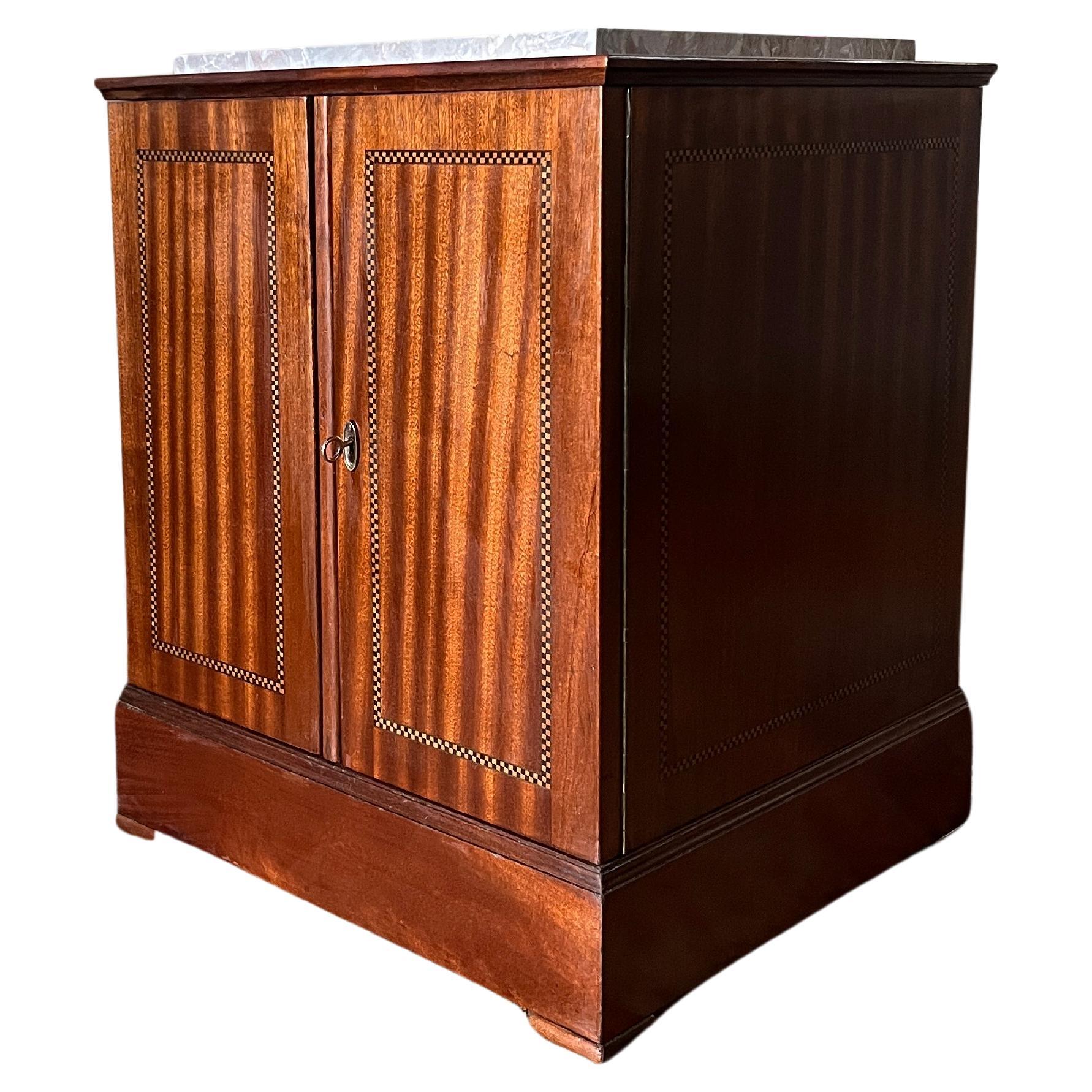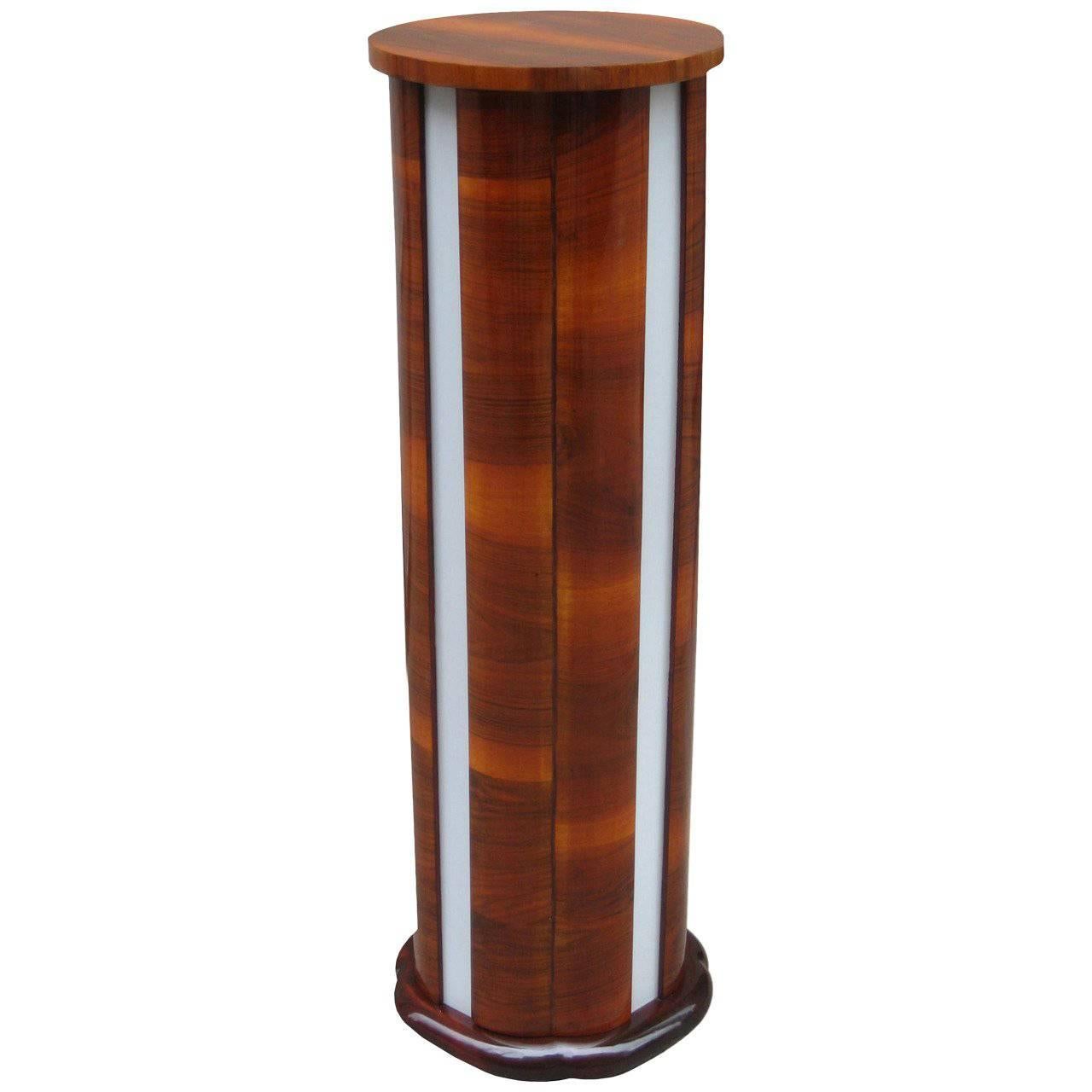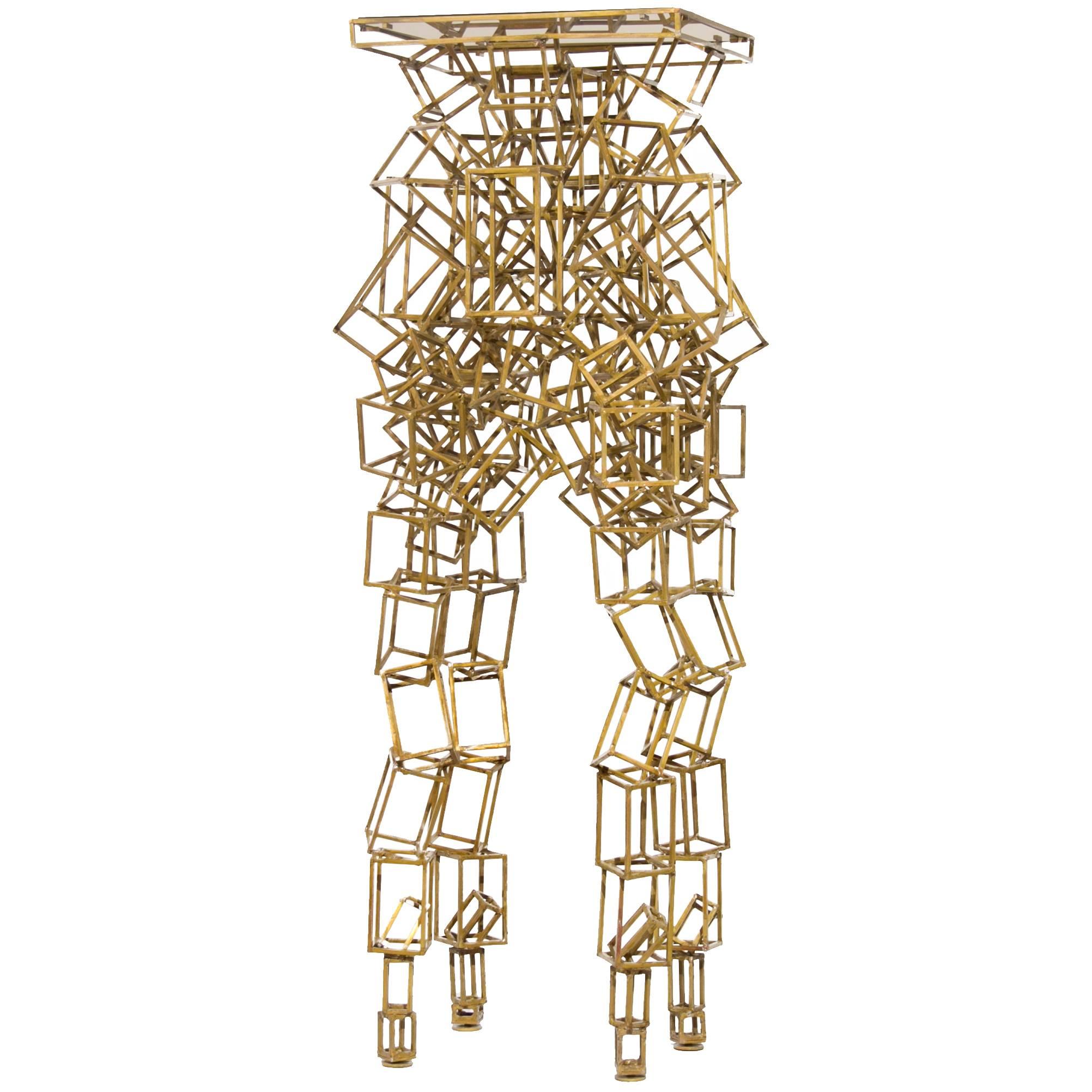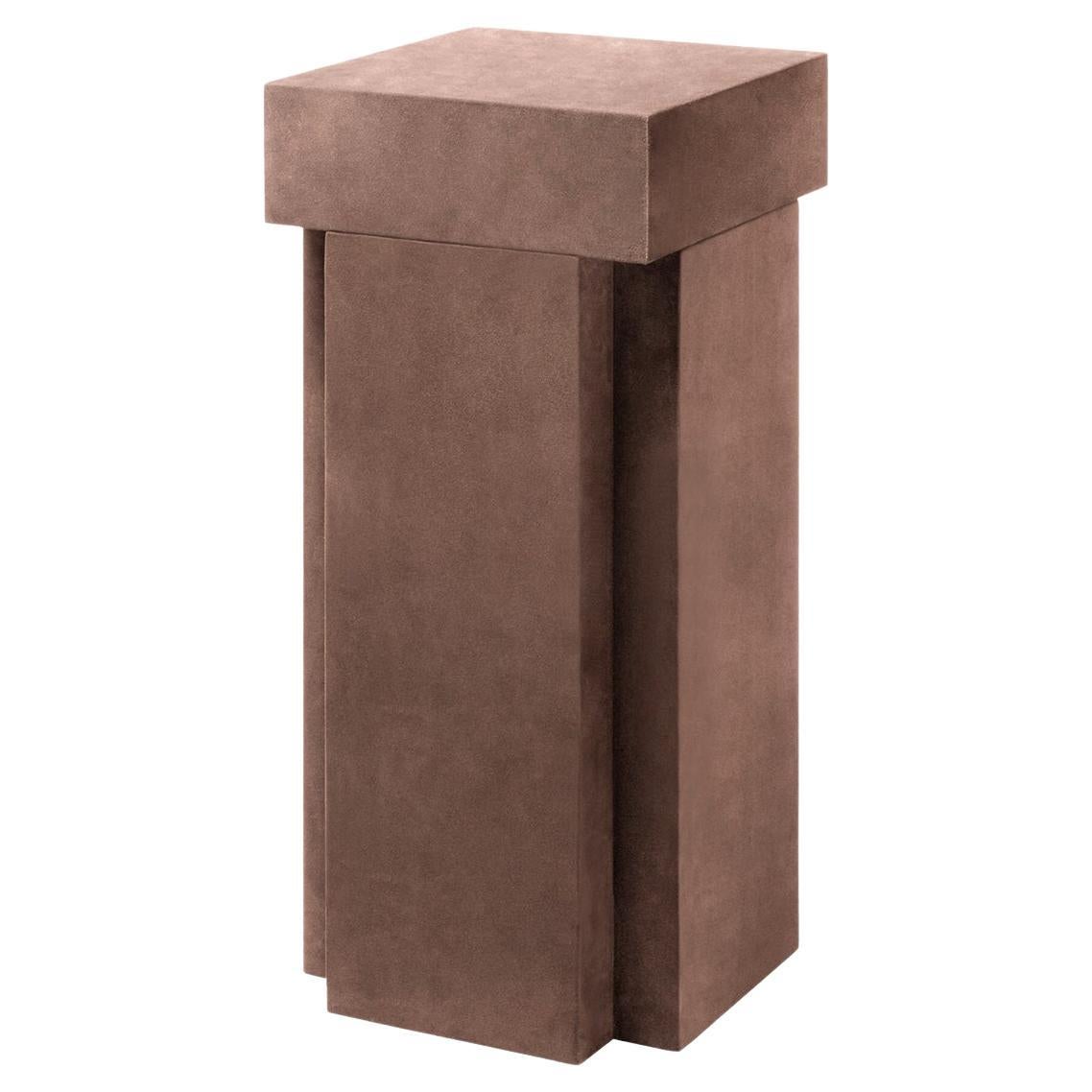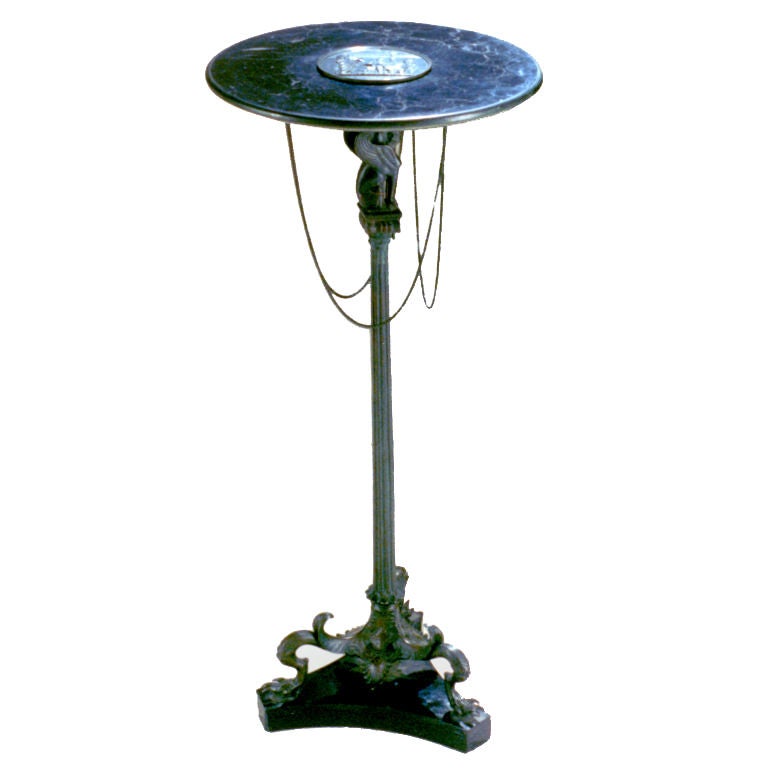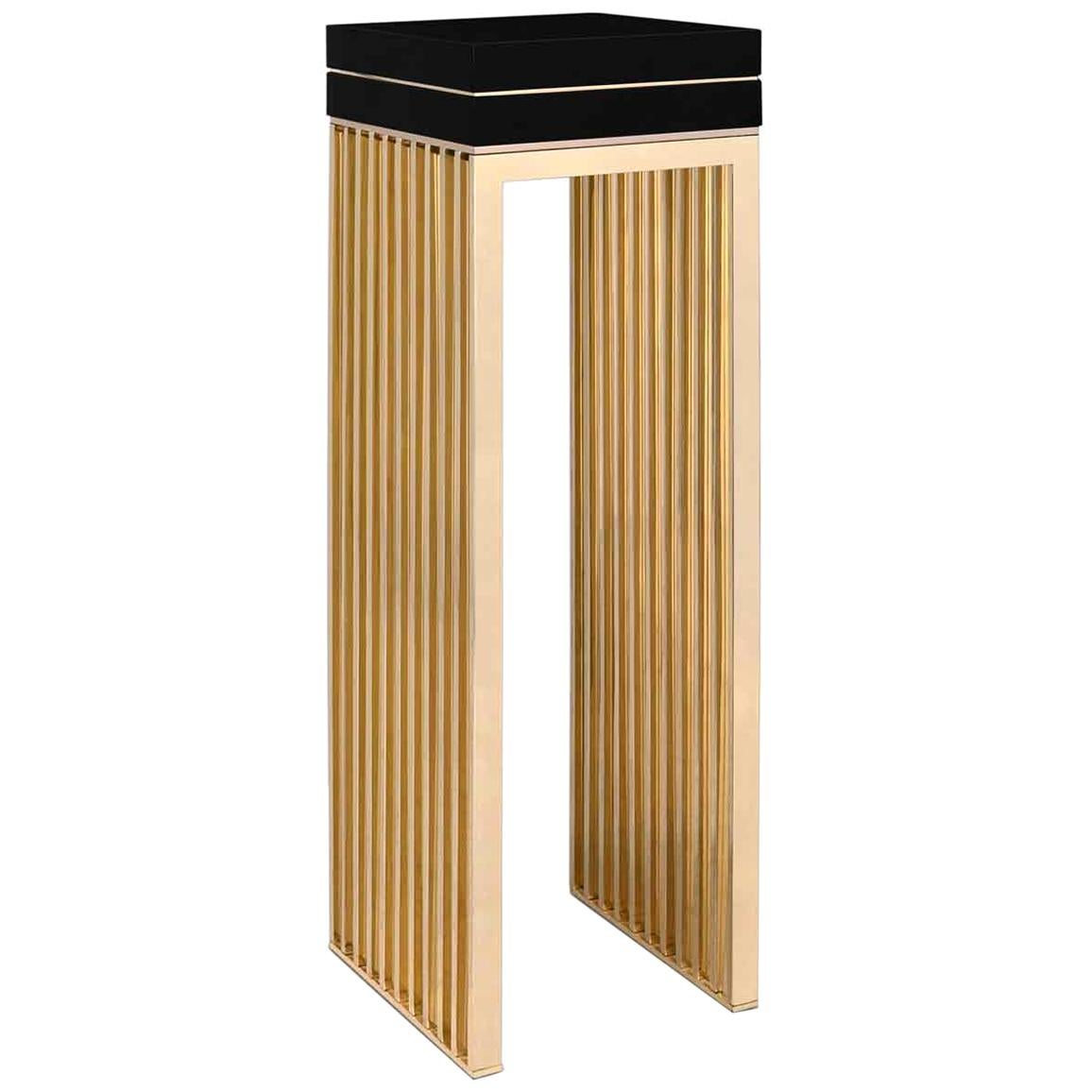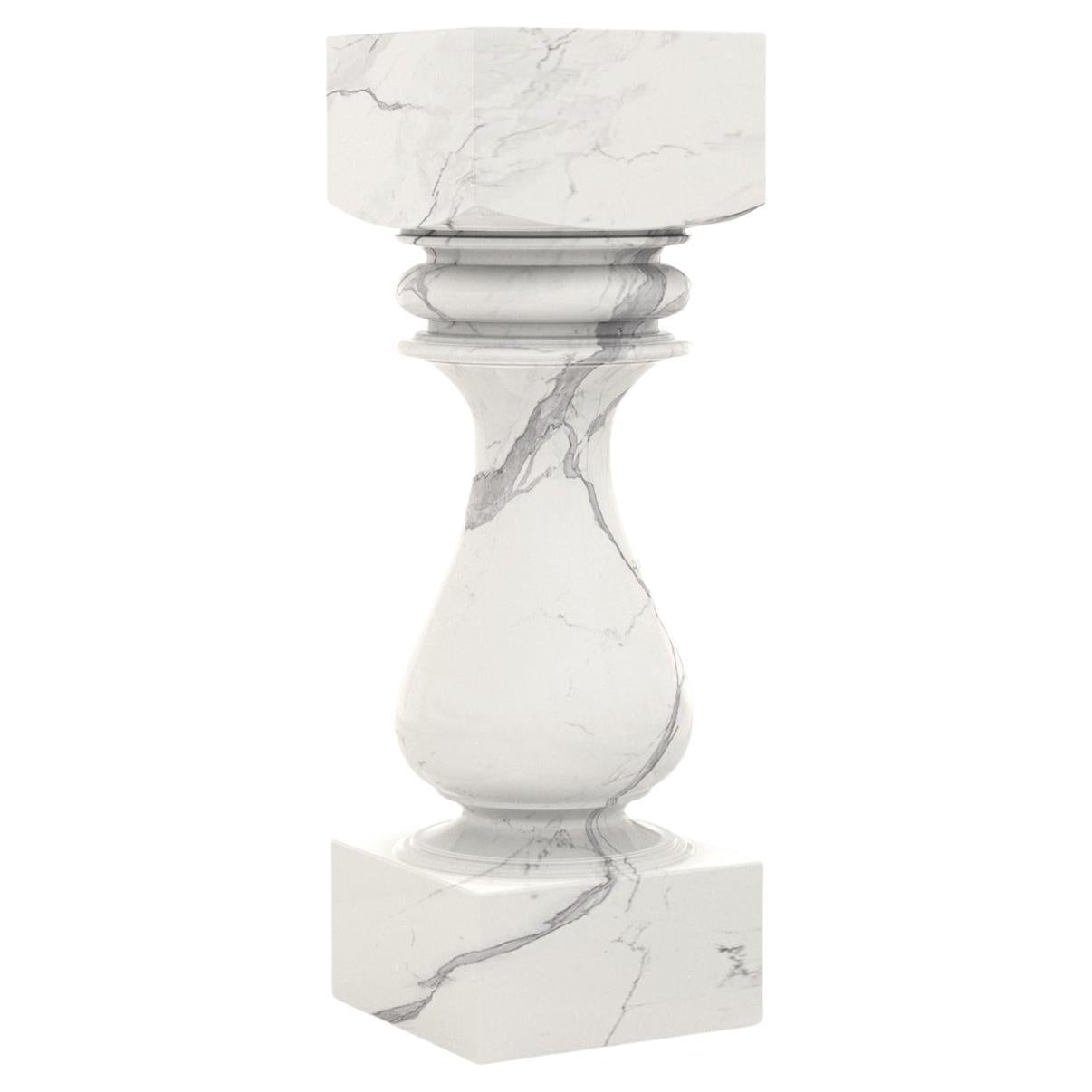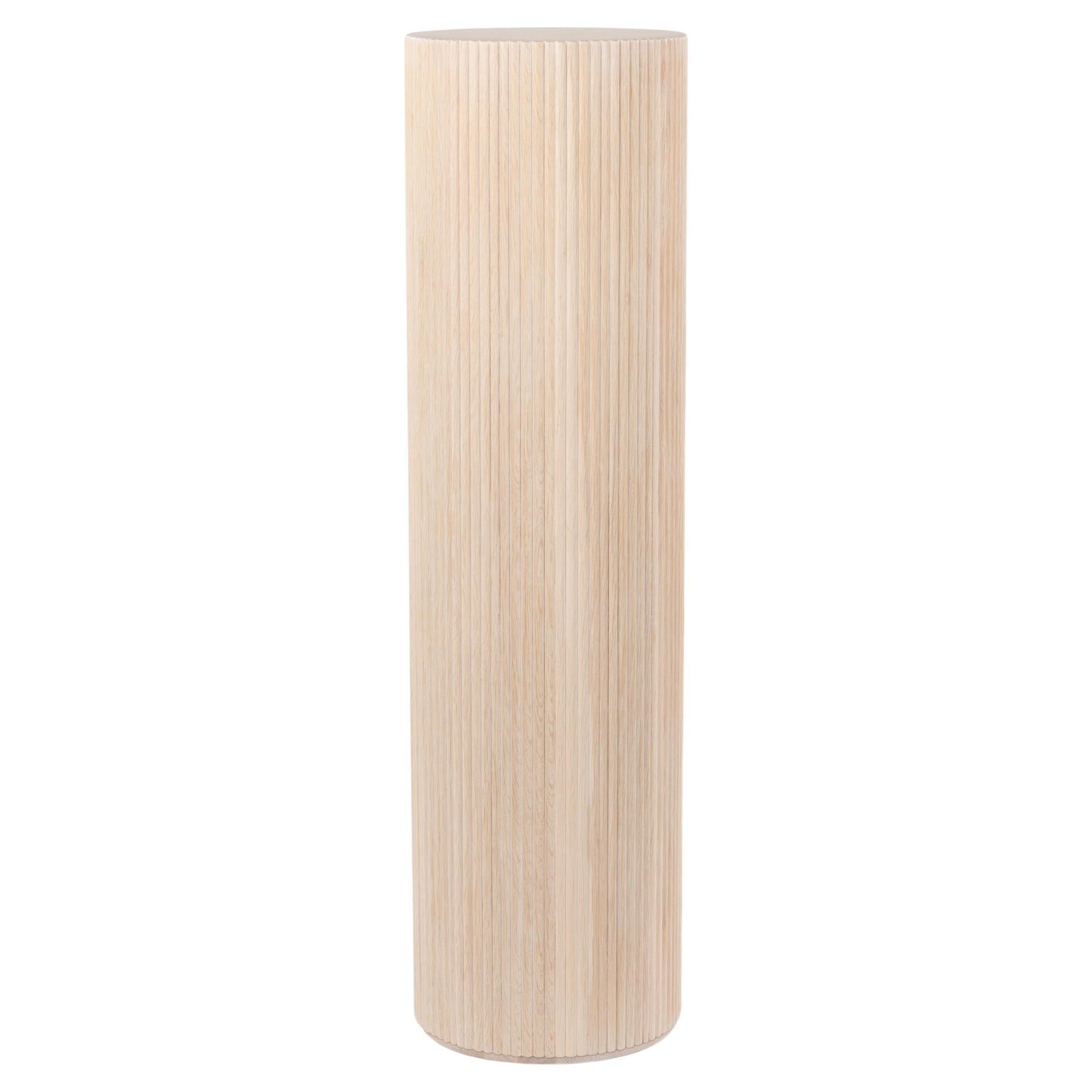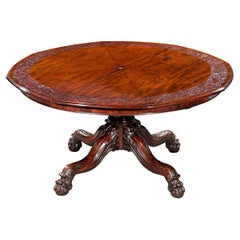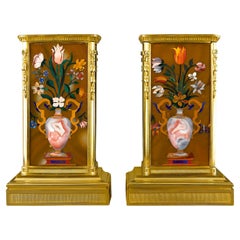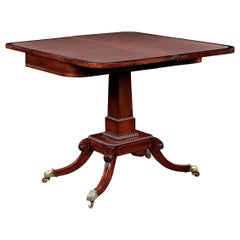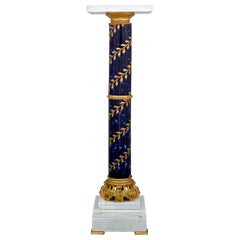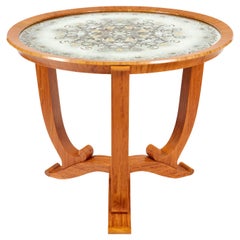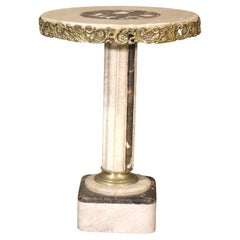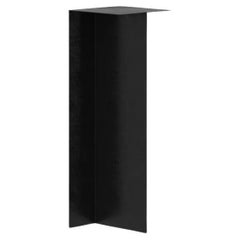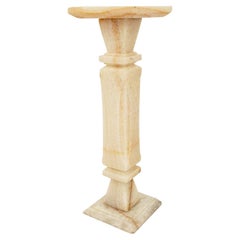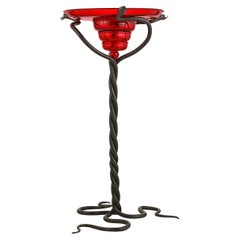
Umberto Bellotto Serpentiform Pedestal
Want more images or videos?
Request additional images or videos from the seller
1 of 6
Umberto Bellotto Serpentiform Pedestal
$38,500List Price
About the Item
- Creator:Umberto Bellotto (Maker)
- Dimensions:Height: 36 in (91.44 cm)Width: 19.75 in (50.17 cm)Depth: 19.75 in (50.17 cm)
- Style:Art Deco (In the Style Of)
- Materials and Techniques:
- Place of Origin:
- Period:
- Date of Manufacture:20th Century
- Condition:
- Seller Location:New Orleans, LA
- Reference Number:Seller: 31-60321stDibs: LU891132332972
About the Seller
5.0
Recognized Seller
These prestigious sellers are industry leaders and represent the highest echelon for item quality and design.
Established in 1912
1stDibs seller since 2010
109 sales on 1stDibs
Typical response time: 3 hours
Authenticity Guarantee
In the unlikely event there’s an issue with an item’s authenticity, contact us within 1 year for a full refund. DetailsMoney-Back Guarantee
If your item is not as described, is damaged in transit, or does not arrive, contact us within 7 days for a full refund. Details24-Hour Cancellation
You have a 24-hour grace period in which to reconsider your purchase, with no questions asked.Vetted Professional Sellers
Our world-class sellers must adhere to strict standards for service and quality, maintaining the integrity of our listings.Price-Match Guarantee
If you find that a seller listed the same item for a lower price elsewhere, we’ll match it.Trusted Global Delivery
Our best-in-class carrier network provides specialized shipping options worldwide, including custom delivery.More From This Seller
View AllExpanding Jupe Dining Table by Johnstone and Jeanes
By Robert Jupe
Located in New Orleans, LA
This exceptionally rare circular expanding dining table was designed by Robert Jupe and crafted by the English cabinetmakers Johnstone & Jeanes, successors to Johnstone, Jupe & Co. One of only a handful known from the firm, this table illustrates the Victorian era's quest to combine technical innovation with superb and beautiful craftsmanship. Complete with its original leaves, the table’s circular top is formed from eight separate segments. When the top is rotated, an ingenious swivel mechanism causes the sections to diverge, allowing a set of small or large leaves to be inserted for an adjustable increase in size.
The design for the table was patented by Robert Jupe in 1835, who had envisioned “an improved expanding table so constructed that the sections composing its surface may be caused to diverge from a common center and that the spaces caused thereby may be filled up by inserting leaves or filling pieces.” The first of these fascinating tables were created between 1835 and 1840 during his partnership with John Johnstone and their firm of Johnstone, Jupe & Co. in London. Jupe left the company in 1840, after which the firm changed its name due to a new partnership and became Johnstone & Jeanes. The firm would eventually achieve international fame for its remarkable designs, exhibiting a "circular table made on the expanding principle" like this one at the Great Exhibition of 1851.
Jupe was not alone in his fascination with combining the technical merits of engineering and mechanics with the more artful pursuit of cabinet making. The first half of the 19th century saw a prolific increase in the popularity of applying new ideas to furniture principles, which allowed furniture to serve many purposes. The resulting “patent” furniture...
Category
Antique 19th Century English Victorian Dining Room Tables
Materials
Mahogany
Russian Malachite and Pietre Dure Plinths
Located in New Orleans, LA
The exquisite art of pietre dure is at its absolute finest in this spectacular pair of Russian ormolu and malachite plinths. True works of art of the Restauration period, these plinths each feature a matching pietre dure mosaic crafted of the finest stones, all chosen to create a sense of depth and dimensionality in the final work. Depicting an onyx vase with tulips, roses, daffodils, magnolia and other flowers, these pietre dure panels are among the finest examples of this ancient art we have seen.
The pietre dure is complemented by malachite panels of the highest quality, exhibiting exceptional depth through its extraordinary cellular structure. Malachite is one of Russia’s most precious stones, and its presence in these plinths indicates commission and ownership by an individual of considerable status. Mounted in an excellent stepped ormolu base, these plinths originally served as bases for vases or candelabra.
The overall execution and appearance of these plinths is very characteristic of the taste associated with the immensely wealthy collector Nicolas Demidoff. As early as 1806, Demidoff had commissioned the Parisian goldsmith Henri August to supply a guéridon; in 1819, he ordered famed French bronzier Pierre-Philippe Thomire to supply mounts for a massive malachite vase (now in the Metropolitan Museum of Art, New York), as well as a console table with legs in the form of Nike. Other commissions included a table given as a gift to Grand Duke Leopoldo II of Florence, now in the Pitti Palace. Demidoff eventually settled in Florence in 1822 and became Russian minister to the Tuscan Court. Elevated to the rank of Count of San Donato by the Grand Duke, he built a magnificent villa at San Donato on the site of lands formerly owned by the Medici. The villa was later inherited by Anatole, his son, Prince of San Donato, and there are records which confirm transactions he had with the Opificio delle Pietre Dure.
The 19th century proved to be the golden age of Russian malachite. The stone became a sign of prestige and a token of wealth, so much so that Russian papers of the time wrote: "To afford having a big piece wrought in malachite is synonymous to owning diamonds." Year after year the Russian (Romanov) treasury paid increasingly unreasonable prices to hoard the best malachite, much of which went into Romanov palaces and extravagant objets d'art. The Hermitage Museum possesses a collection of over two hundred examples of this “palatial” malachite...
Category
Antique 19th Century Russian Pedestals
Materials
Malachite, Ormolu
$168,500 / set
Regency-Era Card Table
Located in New Orleans, LA
This ingenious late Regency card table was designed with both beauty and entertainment in mind. When not in use, its folded D-shaped top sits against the wall providing an elegant si...
Category
Antique Early 19th Century English Regency Game Tables
Materials
Wood
$8,850
Sèvres-Style Porcelain Pedestal
Located in New Orleans, LA
This pedestal exhibits the style and grace of the famed Sèvres porcelain manufactory. Its lustrous deep blue porcelain base is Classic Sèvres in style, and it provides the perfect ba...
Category
Antique Late 19th Century French Neoclassical Pedestals and Columns
Materials
Bronze
Pair of Rouge Marble Pedestals
Located in New Orleans, LA
This spectacular pair of marble and doré bronze pedestals is hewn from the finest French "Partridge eye" rouge griotte marble from the Languedoc region. Formed as Corinthian columns, these neoclassical pedestals are complete with intricate bronze doré capitals and acanthus and olive leaf bands around the base. Named for the griotte cherry for its deep, rich color, Red Griotte was the favorite marble for Royal apartments in the 18th century and was used to create the fireplace mantel in the office of Louis XIV in Versailles. This particular type is called "Partridge eye" due to its inclusion of goniatites (small fossilized shells...
Category
Antique 19th Century European Neoclassical Pedestals and Columns
Materials
Marble, Bronze
$34,500 / set
Incredible English Mahogany Seven-Pedestal Dining Table
Located in New Orleans, LA
Measuring over 30 feet in length, this tremendous and highly versatile English dining table is the greatest. It has the ability to transform to a multitude of sizes to fit any occasi...
Category
Antique 19th Century British Neoclassical Dining Room Tables
Materials
Brass
You May Also Like
Pedestal Table
By Jules Leleu
Located in Paris, FR
Lemon tree veneer pedestal table with a tripod base and console-shaped feet.
The circular églomisé glass top is decorated with scrolls and stylized flowers in golden leaves.
Signed on an ivory plaque...
Category
Vintage 1940s European Art Deco Pedestals
Materials
Art Glass, Fruitwood
$47,374
Marble Pedestal Table
Located in Brooklyn, NY
Round marble pedestal table with Greek column and brass trim.
Please confirm location NY or NJ
Category
20th Century Art Deco Pedestals
Materials
Marble, Brass
$1,000
Pedestal
By Leonardo Floresvillar
Located in Ciudad De México, MX
Crafted in aluminum coated in electrostatic paint.
Category
21st Century and Contemporary Mexican Modern Pedestals
Materials
Iron
$1,250 / item
Art Deco Onyx Pedestal
Located in Astoria, NY
Art Deco Onyx Pedestal, square top and base, square column with relief carved arcs. 36" H x 12" W x 12" D. Provenance: From a New York City Collection.
Category
Early 20th Century Art Deco Pedestals
Materials
Onyx
$1,450
Center Pedestal Jugendstil Cabinet
By Bruno Paul
Located in Petershagen, DE
Berlin pedestal centre cabinet in the style of Bruno Paul, circa 1925
This four-sided cabinet is veneered on all sides, allowing it to be placed in the centre of a room. The top has...
Category
Antique Early 1900s German Art Deco Pedestals
Materials
Marble
Art Deco Illuminated Pedestal
Located in New York, NY
An Art Deco illuminated pedestal.
French walnut with four illuminated frosted glass panels.
Category
Vintage 1930s French Art Deco Pedestals
Materials
Glass, Walnut
Recently Viewed
View AllMore Ways To Browse
Snake Bowl
Murano Glass Snakes
Snake Murano
Umberto Bellotto
Rubelli Glass
Antique Wood Podiums
Barley Twist Plant Stand
Fossil Stone Pedestal
Onyx Plant Stand
I Beam Pedestal
Torchiere Plant Stand
Victorian Fern Stand
Maitland Smith Plant Stand
Pink Onyx Pedestal
Masonic Table
Rams Head Plant Stand
Tortoise Plant Stand
Art Deco Podium
